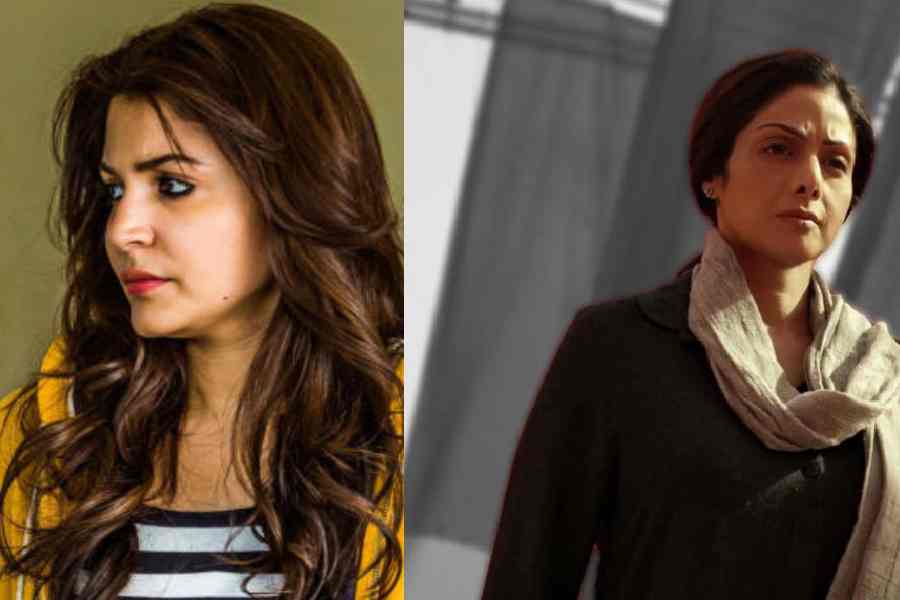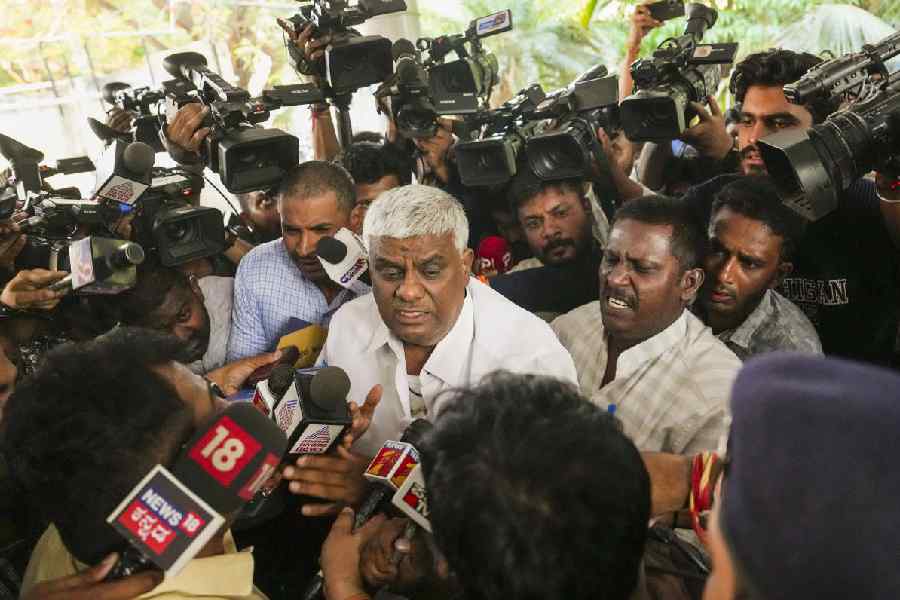One of my favourite films which celebrates the fierceness and tenacity of an ordinary woman in an extraordinary situation is the Sridevi crime thriller Mom (2017). It narrates the exceptional journey of a stepmother determined to exact revenge against her stepdaughter’s rapists. Sridevi, in her swansong, embodies the remarkable traits of a mother, adding emotions and behaviour patterns that smash the stereotypical notion around stepmothers. Be it her endeavour to win her stepdaughter’s affection or her perilous decision to punish the culprits, she exhibits exemplary courage. Apart from the central theme, the film also covers teenage issues like drug abuse and rejection which has a detrimental effect on a teenager’s psychology, driving them to commit heinous crimes. The disturbing truth that many serious offenders are often acquitted for lack of sufficient evidence is also dealt with in the movie. In a nutshell, the director brilliantly incorporates myriad themes and delivers one of the finest films of all time. (My favourite film of an ordinary woman in an extraordinary situation is... November 17)
Aayman Anwar Ali
Bandit Queen, released in 1994 and directed by Shekhar Kapur, was based on the real life story of Phoolan Devi, the lady dacoit who surrendered to the government in 1984. A low caste, underage girl is married to a violent man against her wishes. She tries to escape and falls victim to sexual predators. It is a tale as old as time, but not quite. She befriends one dacoit after another and finally acknowledge her as one of their own. Several vengeful raids later, she surrenders. It is a story of a young girl, but probably not ordinary.
Pampa Paul
Navdeep Singh’s film NH10 depicts how an ordinary working woman, Meera (Anushka Sharma), undergoes a harrowing experience and takes a rock-solid pledge to avenge her husband’s death. The young couple were all set to enjoy a vacation at a luxe private villa on the outskirts of Delhi when they encounter an incident that turns their life topsy-turvy. They become witness to a gruesome honour killing and Meera’s husband, Arjun (Neil Bhoopalam), unwittingly shoots an innocent man on the spur of the moment while trying to escape the clutches of some ruthless goons.
Traumatised after she manages to give the slip to a bunch of carjackers on a deserted road in the middle of the night, Meera is too scared to pay heed to a stranger’s repeated requests to save her life in a dhaba. Meera implores Arjun to stay away from the offenders but Arjun is bent upon frightening them away with a loaded gun. Arjun is fatally wounded and Meera leaves her moribund husband under a secluded railroad bridge to seek help. A life-changing experience is what she salvages from her bitter tryst with destiny.
She musters courage and runs from pillar to post to save her dying husband. She also resolves to terminate the lives of the miscreants, leaving the village Sarpanch (Deepti Naval) mourning the death of her son and her brother. Meera is dumbfounded when she finds that Sarpanchji herself had spearheaded the honour-killing mission involving her daughter and has no qualms whatsoever for her loss. What started as a romantic escapade goes awry and degenerates into a grisly ordeal that transforms a rather meek Meera into an unwavering individual intent on paying back the criminals in their own coin.
Suparna Ghosh
My favourite film of an ordinary woman thrown into an extraordinary situation is none other than Saroj De’s iconic Bengali film Koni. Though exceptionally talented and lovingly nurtured and groomed by swimming coach Khidda (Soumitra Chatterjee), Koni was much neglected and marginalised by the management and fellow swimmers of the Bengal team participating in the national championship in Madras, not only for her extremely humble roots, but also for the ‘sin’ of being the protege of Khitish Sinha (Khidda) whom his coaching counterparts loved to hate.
However luck favours her when one of the swimmers in a competition falls sick, thereby compelling the management to grudgingly include her in the fray. And what a performance she delivered, not only for the sake of Bengal, but also as an emphatic retort to the mental assaults and conspiracies she had been subjected to throughout her fledgling career, from within the team.
Boosted by the stimulating call of “fight Koni fight” by Khidda, the much-tormented, deprived, poor girl simply gave her all (despite being called at the last moment with no mental preparation) and by winning the gold for Bengal, paid the best possible tribute to her selfless coach and his Herculean effort to make her a champion. It was a superlative exhibition of skill, stamina and perseverance with never-say-die attitude by the slum girl Koni, most convincingly portrayed by Sriparna Banerjee.
Kajal Chatterjee
My favourite film that portrays a so-called ‘ordinary’ woman thrown into extraordinary circumstances is English Vinglish, a powerful feminist movie that speaks of women empowerment. The film’s protagonist, an ‘ordinary’, conformist housewife, Shashi Godbole (Sridevi), is a middle-aged woman who feels undermined because of her inability to speak English. In the film, she embarks on a journey to empower herself by learning the language.
The movie continuously challenges stereotypes associated with women, especially the notion that a woman’s worth is determined by her proficiency in English or her ability to conform to societal norms. Shashi breaks these stereotypes by embracing her imperfections and learning to value herself beyond society’s judgements. She ends up in difficult situations outside her comfort zone, as well as her homeland, and ends up on a journey of self-discovery and reclaiming her agency.
Camellia Paul
The setting of Apurva reminds me of the film Shakti: The Power (2002). The dilapidated broken walls amid a desert is similar in both cases. Nandini a charming, pampered, modern girls grows up in Canada, marries an Indian named Shekhar whom she knows was an orphan but later learns that he has a family in a rural region in India associated with gang war. Nandini and her son Raja are uncomfortable in a tribal environment after reaching India. Her husband’s father’s rival attempts to murder Shekhar. They fail at first but after Narasimha kills the son of rival gang, they murder Shekhar. A scared Nandini tries to flee but fails. To maintain the family’s lineage, the family wants to keep Raja with them and seek revenge for his father’s death. They separate mother and son but a thief Jai helps them to get out. After several attempts, Narasimha allows them to go.
Moubani Paul
Baran is a 2001 film by the celebrated Iranian director Majid Majidi. The film tells the story of a young girl disguising herself as a boy to work as a labourer. Afghan refugees in Iran with no citizenship status or identity cards are often illegally employed as labourers, and hastily hidden away by their employers when labour inspectors show up. When Najaf is unable to work after an injury, he brings his 14-year-old son Rahmat to replace him as an illegal labourer. Lateef, a 17-year-old Iranian labourer, is angry with Rahmat for taking his slot at work. While spying on Rahmat out of spite, he discovers that Rahmat is not a boy but a girl! Lateef’s animosity changes into love as he becomes protective towards Rahmat. His inquiries at the Afghan camp reveal that Rahmat is actually Najaf’s daughter, a gender- neutral Persian word that means rain. The film ends with Lateef selling his own identity card to help Baran and her family return to their homeland. He looks on as Baran’s last footprint on Iranian soil is dissolved in rain.
In addition to being a poignant cinematic reflection on the question of citizenship and identity, the film is a paean to the spirit of a young girl determined to provide for her family, braving a patriarchal society that denies women employment opportunities. Incidentally, women’s cross-dressing is an important form of subversion in Iran: women often dress up as men to enter football stadiums where they are not allowed. In a country where women’s and queer people’s rights are trampled upon and films are heavily censored, directors often voice political critique in such indirect, allusive ways.
Dhee Sankar
My favourite Bengali film of an ordinary woman thrown into an extraordinary situation is the Satyajit Ray-directed 1960 masterpiece Devi, starring Sharmila Tagore. The Alia Bhatt starring Meghna Gulzar directorial Raazi (2018) is my favourite Hindi movie of an ordinary woman thrown into an extraordinary situation.
Sourish Misra










